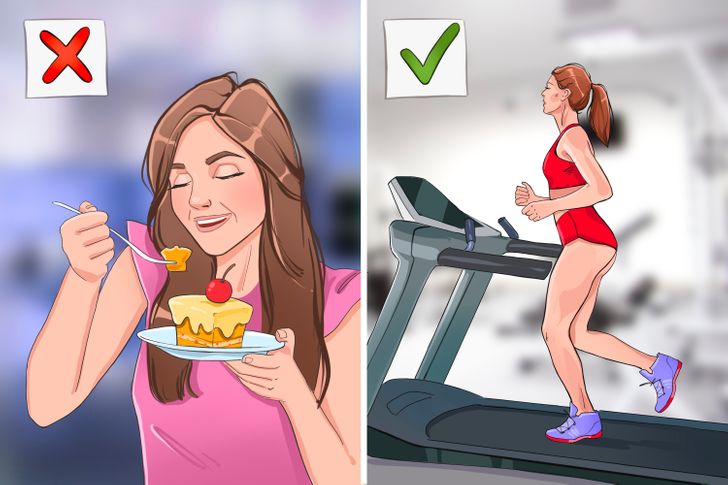The basic definition of self-control, according to psychologists, is “the ability to manage your impulses, emotions, and behaviors to achieve long-term goals.” However, a lack of self-control, especially when it comes to controlling emotions (from intense to mildly irritating), is more common than you might think, and many people face this problem on a daily basis.
The good news is that you can easily learn to control your emotions because self-control is one of the most important skills you can learn on your own.
We hope that you will find a way to improve your self-control and be happier in general. So here is our list of things that can help you control your emotions, regain self-control, and become the owner of your own life.
How to Improve Your Self-Control
Remember To Smile

According to a recent study, a smile can definitely go a mile. Smiling, even when you don’t feel like it, can trick your brain into thinking you’re happy.
It goes without saying that smiling will make you look more attractive in the eyes of others because nobody is more beautiful than when they smile! You can watch this video on the power of smiling.
Focus On Your Breath

Learning to control your breathing is one of the most important lessons you can learn. This may be easier said than done, but in the words of spiritual master Eckhart Tolle, the key to inner transformation is living in the present moment.
Close your eyes and pay attention to your breathing when you feel overwhelmed. Tolle says that when you are aware of your breath, you are fully present and that keeps your mind from racing.
Start Journaling

As the old saying goes, a letter does not blush. The journal is a powerful self-exploration tool that can become your best friend and most trusted confidant if you decide to commit to it.
Whenever you experience unwanted emotions, write them all down in your journal and let them work their magic.
You will be able to understand yourself on a much deeper level, without feeling judged or misunderstood by your silent but eternally loyal friend.
Replace Negative Habits With Positive Ones

You can easily replace a negative habit with a positive alternative. For example, if you feel like eating sweets when you have difficult emotions, you can hit the gym and sweat to relieve stress (watch this exercise video for inspiration).
Or, if you feel like spending money on unnecessary things, take a long nature walk where you won’t have a chance to spend your hard-earned money on mindless consumption.
Create A Routine That Works For You

Routine may not be the most modern and glamorous word in the modern lexicon, but it is absolutely crucial to your self-care, especially when it comes to managing your emotions and the wild mood swings of modern life.
Routines promote mental well-being by helping us develop positive daily habits. For example, commit to a daily night walk or limit your online activity to 30 minutes a day and you’ll instantly feel better.
Make A To-do List

To create a sustainable and enjoyable routine, you can start to get used to writing to-do lists. Depending on the environment you find yourself in, everything in life is fleeting and elusive. That is why it is not always enough to have good intentions.
On the contrary, it is very important to remember what your goals are, otherwise, it is very easy to miss the forest beyond the trees, as this study shows.
Keeping track of what you need to do is very helpful if you want to stay firm and in control of your emotions. Tip: Write a list of the things you want to do when you wake up.
How do you deal with unwanted emotions? Have you tried something from our list? Please let us know in the comments below!


